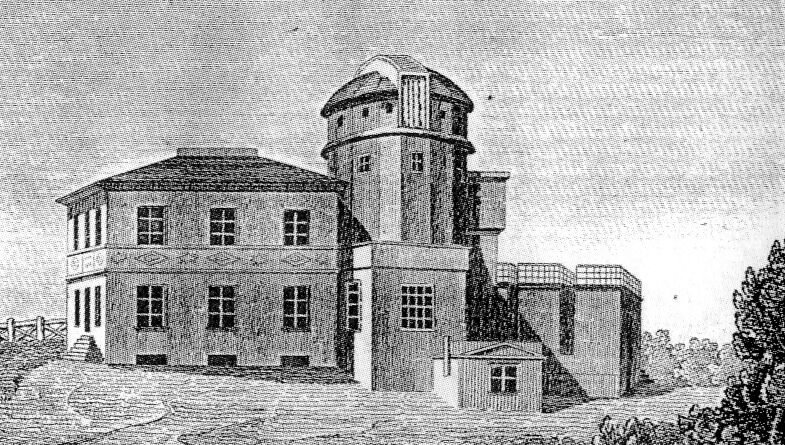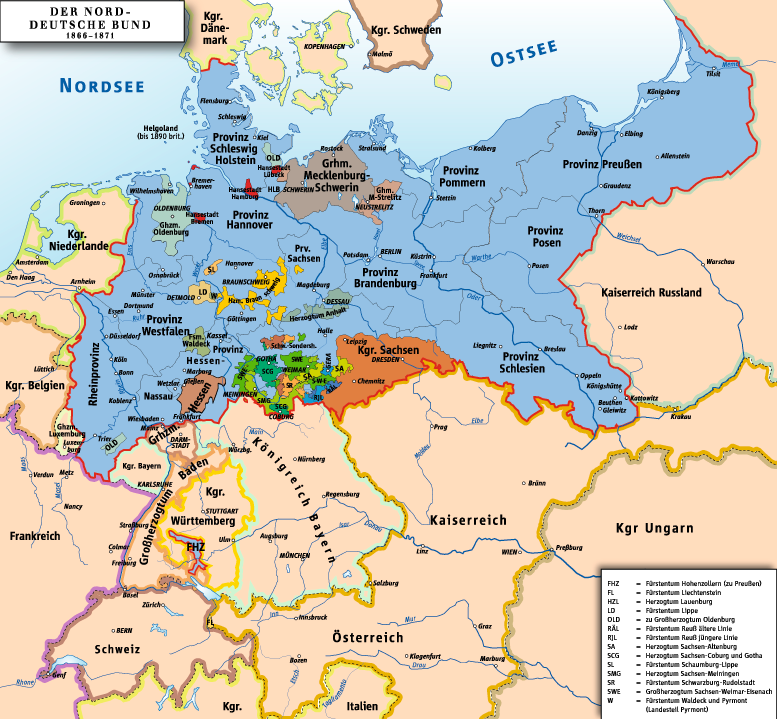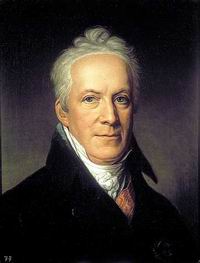|
Adolf Hermann Hagen
Adolf Hermann Wilhelm Hagen (23 September 1820 – 17 August 1894) was a public official in Prussia. He was also a banker and a liberal politician. He is known for the "Hagen resolution", presented in the Prussian House of Representatives in 1862, which triggered a general election and heralded the end of the so-called (and as matters turned out short-lived) "New Era" in Prussian politics. Early life Adolf Hagen (in some sources ''Adolph'' Hagen) was born into a leading family of successful intellectuals in Königsberg, the principal city in what was then East Prussia. His father was Carl Heinrich Hagen, a leading lawyer, socio-economist and senior government official. An uncle was the pioneering professor for Art history and Aesthetics, Ernst August Hagen. The chemist Karl Gottfried Hagen was his grandfather. Career Hagen studied jurisprudence at Königsberg and then, in 1843, entered into public service in Königsberg. In 1854 he became "city treasurer" (''Stad ... [...More Info...] [...Related Items...] OR: [Wikipedia] [Google] [Baidu] |
Königsberg
Königsberg (; ; ; ; ; ; , ) is the historic Germany, German and Prussian name of the city now called Kaliningrad, Russia. The city was founded in 1255 on the site of the small Old Prussians, Old Prussian settlement ''Twangste'' by the Teutonic Knights during the Northern Crusades, Baltic Crusades. It was named in honour of King Ottokar II of Bohemia, who led a campaign against the pagan Old Prussians, a Baltic tribe. A Baltic Sea, Baltic port city, it successively became the capital of the State of the Teutonic Order, the Duchy of Prussia and the provinces of East Prussia and Province of Prussia, Prussia. Königsberg remained the coronation city of the Prussian monarchy from 1701 onwards, though the capital was Berlin. From the thirteenth to the twentieth centuries on, the inhabitants spoke predominantly German language, German, although the city also had a profound influence upon the Lithuanian and Polish cultures. It was a publishing center of Lutheranism, Lutheran literatu ... [...More Info...] [...Related Items...] OR: [Wikipedia] [Google] [Baidu] |
Berlin
Berlin ( ; ) is the Capital of Germany, capital and largest city of Germany, by both area and List of cities in Germany by population, population. With 3.7 million inhabitants, it has the List of cities in the European Union by population within city limits, highest population within its city limits of any city in the European Union. The city is also one of the states of Germany, being the List of German states by area, third smallest state in the country by area. Berlin is surrounded by the state of Brandenburg, and Brandenburg's capital Potsdam is nearby. The urban area of Berlin has a population of over 4.6 million and is therefore the most populous urban area in Germany. The Berlin/Brandenburg Metropolitan Region, Berlin-Brandenburg capital region has around 6.2 million inhabitants and is Germany's second-largest metropolitan region after the Rhine-Ruhr region, as well as the List of EU metropolitan areas by GDP, fifth-biggest metropolitan region by GDP in the European Union. ... [...More Info...] [...Related Items...] OR: [Wikipedia] [Google] [Baidu] |
1894 Deaths
Events January * January 4 – A military alliance is established between the French Third Republic and the Russian Empire. * January 7 – William Kennedy Dickson receives a patent for motion picture film in the United States. * January 9 – New England Telephone and Telegraph installs the first battery-operated telephone switchboard, in Lexington, Massachusetts. February * February 12 – French anarchist Émile Henry sets off a bomb in a Paris café, killing one person and wounding twenty. * February 15 ** In Korea, peasant unrest erupts in the Donghak Peasant Revolution, a massive revolt of followers of the Donghak movement. Both China and Japan send military forces, claiming to come to the ruling Joseon dynasty government's aid. ** French anarchist Martial Bourdin dies of an accidental detonation of his own bomb, next to the Royal Observatory, Greenwich, in London, England. March * March 1 – The Local Government Act (coming into effe ... [...More Info...] [...Related Items...] OR: [Wikipedia] [Google] [Baidu] |
1820 Births
Events January–March *January 1 – A constitutionalist military insurrection at Cádiz leads to the summoning of the Spanish Parliament to meet on March 7, becoming the nominal beginning of the " Trienio Liberal" in Spain. *January 8 – The General Maritime Treaty of 1820 is signed between the sheikhs of Abu Dhabi, Sharjah, Ajman, Umm al-Quwain and Ras Al Khaimah (later constituents of the Trucial States) in the Arabian Peninsula and the United Kingdom. *January 27 ( NS, January 15 OS) – An Imperial Russian Navy expedition, led by Fabian Gottlieb von Bellingshausen in '' Vostok'' with Mikhail Petrovich Lazarev, sights the Antarctic ice sheet. *January 29 – George IV of the United Kingdom becomes the new British monarch upon the death his father King George III after 59 years on the throne. The elder George's death ends the 9-year period known as the British Regency. *January 30 – British Royal Navy captain Edward Bransfield, an Irishman, becomes ... [...More Info...] [...Related Items...] OR: [Wikipedia] [Google] [Baidu] |
Friedrich Bessel
Friedrich Wilhelm Bessel (; 22 July 1784 – 17 March 1846) was a German astronomer, mathematician, physicist, and geodesy, geodesist. He was the first astronomer who determined reliable values for the distance from the Sun to another star by the method of parallax. Certain important mathematical functions were first studied systematically by Bessel and were named Bessel functions in his honour. Life and family Bessel was born in Minden, Westphalia, then capital of the Prussian administrative region Minden-Ravensberg, as second son of a civil servant into a large family. At the age of 14 he left the school, because he did not like the education in Latin language, and apprenticed in the import-export concern Kulenkamp at Bremen. The business's reliance on cargo ships led him to turn his mathematics, mathematical skills to problems in navigation. This in turn led to an interest in astronomy as a way of determining longitude. Bessel came to the attention of Heinrich Wilhelm Olber ... [...More Info...] [...Related Items...] OR: [Wikipedia] [Google] [Baidu] |
Reichstag (North German Confederation)
The Reichstag () of the North German Confederation was the federal state's lower house of parliament. The popularly elected Reichstag was responsible for federal legislation together with the Bundesrat (German Empire), Bundesrat, the upper house whose members were appointed by the governments of the individual states to represent their interests. Executive power lay with the Bundesrat and the king of Prussia acting as ''Bundespräsidium'', or head of state. The Reichstag debated and approved or rejected taxes and expenditures and could propose laws in its own right. To become effective, all laws required the approval of both the Bundesrat and the Reichstag. Voting rights in Reichstag elections were advanced for the time, granting universal, equal, and secret suffrage to men above the age of 25. When the German Empire was established in 1871, the North German Reichstag formed the basis of the new Reichstag of the German Empire. Background The draft constitution Following Prus ... [...More Info...] [...Related Items...] OR: [Wikipedia] [Google] [Baidu] |
List Of Foreign Ministers Of Prussia
This article lists foreign ministers of Prussia. History After the creation of the German Empire in 1871, the Chancellor of Germany, imperial chancellor was normally also foreign minister of Prussia. However, during the chancellorship of Chlodwig zu Hohenlohe-Schillingsfürst, Prince Hohenlohe (1894–1900), the position was held by the Foreign Minister of Germany, state secretaries for foreign affairs. Foreign ministers (1768–1918) See also *Minister for Foreign Affairs (Germany), Foreign Minister of Germany *Minister of Foreign Affairs (Bavaria), Foreign Minister of Bavaria *Minister President of Prussia *List of interior ministers of Prussia References External links Announcement: From the Royal Majesty of Prussia to His Foreign Ministers Concerning The Violence Perpetrated by the Austrian Crown and Its Allies Without Justification from Yale University {{Foreign relations of Germany Lists of ministers of foreign affairs, Prussia Lists of government ministers of Pr ... [...More Info...] [...Related Items...] OR: [Wikipedia] [Google] [Baidu] |
Otto Von Bismarck
Otto, Prince of Bismarck, Count of Bismarck-Schönhausen, Duke of Lauenburg (; born ''Otto Eduard Leopold von Bismarck''; 1 April 1815 – 30 July 1898) was a German statesman and diplomat who oversaw the unification of Germany and served as its first Chancellor of Germany, chancellor from 1871 to 1890. Bismarck's ''Realpolitik'' and firm governance resulted in him being popularly known as the Iron Chancellor (). From Junker (Prussia), Junker landowner origins, Otto von Bismarck rose rapidly in Prussia, Prussian politics under King William I, German Emperor, Wilhelm I of Prussia. He served as the Prussian ambassador to Russian Empire, Russia and Second French Empire, France and in both houses of the Landtag of Prussia, Prussian parliament. From 1862 to 1890, he held office as the Minister President of Prussia, minister president and foreign minister of Prussia. Under Bismarck's leadership, Prussia provoked three short, decisive wars against Second Schleswig War, Denmark, Austr ... [...More Info...] [...Related Items...] OR: [Wikipedia] [Google] [Baidu] |
William I, German Emperor
Wilhelm I (Wilhelm Friedrich Ludwig; 22 March 1797 – 9 March 1888) was King of Prussia from 1861 and German Emperor from 1871 until his death in 1888. A member of the House of Hohenzollern, he was the first head of state of a united Germany. He was regent of Prussia from 1858 to 1861 for his brother Frederick William IV. During the reign of his grandson Wilhelm II, he was known as Emperor Wilhelm the Great (German: ''Kaiser Wilhelm der Große''). The second son of Frederick William III of Prussia, Prince Frederick William and Louise of Mecklenburg-Strelitz, Wilhelm was not expected to ascend to the throne. His grandfather, King Frederick William II of Prussia, Frederick William II died the year he was born, and his father was crowned Frederick William III of Prussia, Frederick William III. Wilhelm fought with distinction during the War of the Sixth Coalition, and afterwards became a prominent figure within the Prussian Army. In 1840, his childless elder brother became King of ... [...More Info...] [...Related Items...] OR: [Wikipedia] [Google] [Baidu] |








